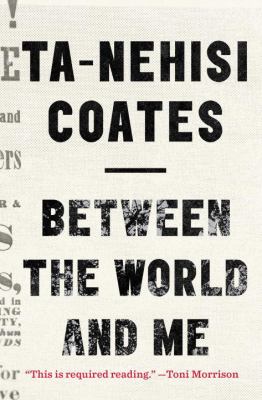I’m taking a sociology class called Learning Of Culture with Lisa Stulberg. It could just as easily be called Culture Of Learning, since it views school as just one cultural setting among many. Our first assignment was to read Between The World And Me by Ta-Nehisi Coates. I agree with Toni Morrison’s cover blurb.
After reading just the first few pages, I couldn’t help but adopt Coates’ prose style. It’s infectious.










